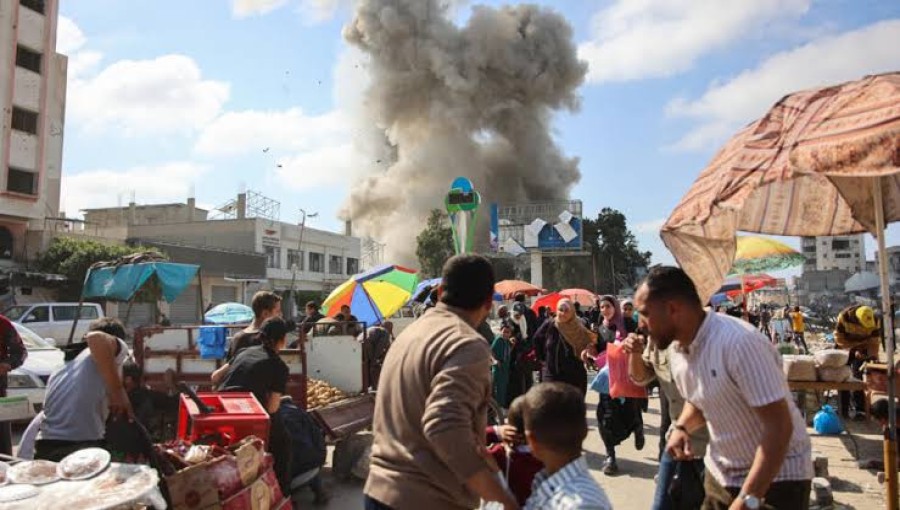Ceasefire negotiations between Hamas and Israel in the Palestinian Gaza Strip have hit a stalemate, with prospects for a resolution fading as Israeli Prime Minister Benjamin Netanyahu rejects Hamas's demand for a permanent cessation of hostilities.
According to reports from Reuters and the BBC, Hamas officials engaged in a second day of talks with Egyptian and Qatari mediators on Sunday, each side maintaining firm positions and demands. Hamas insists that any ceasefire agreement must include a commitment to permanently stop hostilities, a demand rejected by Israel.
An anonymous source involved in the Cairo talks expressed concerns about the intransigence of both sides, warning that failure to reach an agreement could derail prospects for a ceasefire and a hostage exchange in Gaza. The source attributed the lack of progress to Israel's refusal to end the ongoing conflict.
While Hamas leaders returned to Cairo for negotiations, Israel did not send a delegation, leading to an extension of the deadline for reaching an agreement. However, hopes for progress were dashed when Netanyahu rejected Hamas's demand for a permanent cessation of hostilities.
An Israeli official, speaking on condition of anonymity, informed the Associated Press (AP) that Israel remains committed to the operation in Rafah, a city in southern Gaza where a significant number of displaced Palestinians have sought refuge. The official emphasized that Israel will not agree to a permanent ceasefire without assurances regarding the Rafah operation.
Hamas officials expressed frustration with Israel's stance, accusing Netanyahu of obstructing the negotiation process and prioritizing the continuation of the conflict. They emphasized that Hamas will not accept any deal that does not explicitly commit to ending hostilities.
Meanwhile, far-right leaders within Netanyahu's coalition have threatened to withdraw from the government if the war on Gaza is halted and the Rafah operation is terminated as part of a ceasefire agreement. Netanyahu has affirmed his commitment to the Rafah operation, regardless of the outcome of negotiations.
As tensions persist and diplomatic efforts continue, the situation remains uncertain, with both sides entrenched in their positions and the prospects for a ceasefire in Gaza hanging in the balance.





























Comment: